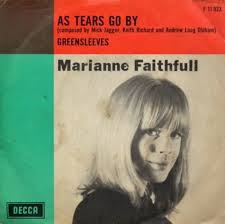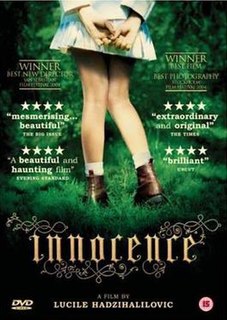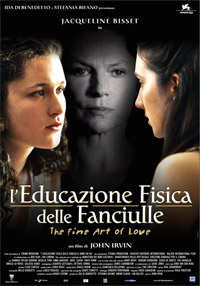Plot
The novella purports to be an autobiographical manuscript handed to the editor by an 84-year-old retired teacher, Helene Engel, shortly before she committed suicide. The "manuscript" itself describes the bizarre education and socialisation of a young girl, Hidalla, in two boarding establishments, the first co-educational, the second all-female. At the age of seven Hidalla is placed in a coffin-like crate and transferred to the "park", a location that is both idyllic and hermetically sealed by high walls, where she spends the next seven years, learning only gymnastics, dance and music. The regime is rigidly hierarchical, with the older girls supervising and teaching the younger ones, the aim being to learn to "think with the hips". Transgression is severely punished. The "park" is financed by the takings from a theatre, where the girls must perform nightly in "pantomimes" of an adult nature they do not understand. At one point a delegation of "ladies" arrive to select the girls for unspecified tasks, but Hidalla is not chosen. With the onset of menstruation, Hidalla and her peers are required to take an underground train to the outside world where they are united with boys of their own age. At this juncture the "manuscript" breaks off.
Reception
The critic Elizabeth Boa has suggested that the story can be read in at least three ways. In the first, the children inhabit a utopia, an alternative childhood, where "a bodily culture of the senses is set against the mind as the source of illusion". [1] The second reading is dystopian: a "nightmare world of rigid control" enforced by the children themselves. [2] The third way is to view it as a "grotesque satire of the way in which girls are actually brought up". [3] The English translator of Mine-Haha, Philip Ward, points to Wedekind’s equivocal attitude towards the feminist movement of his day, his taste for voyeurism and biological essentialism conflicting with his radical ideas on education and marriage: "we applaud Wedekind’s insight, while perhaps fretting about his motivation in arriving at it". [4] The work was praised, with reservations, by Leon Trotsky. [5] Theodor W. Adorno placed it, alongside Edgar Allan Poe's Pym, among the "greatest works" of "fantastic art". [6] More recently, the singer Marianne Faithfull has described it as "a fairy tale that morphs into something far more grotesque – a psycho-sexual Expressionist fable". [7]

Leon Trotsky was a Russian revolutionary, Marxist theorist, and Soviet politician whose particular strain of Marxist thought is known as Trotskyism.

Theodor W. Adorno was a German philosopher, sociologist, psychologist and composer known for his critical theory of society.

Edgar Allan Poe was an American writer, editor, and literary critic. Poe is best known for his poetry and short stories, particularly his tales of mystery and the macabre. He is widely regarded as a central figure of Romanticism in the United States and of American literature as a whole, and he was one of the country's earliest practitioners of the short story. He is generally considered the inventor of the detective fiction genre and is further credited with contributing to the emerging genre of science fiction. He was the first well-known American writer to earn a living through writing alone, resulting in a financially difficult life and career.
The title Mine-Haha is a Germanised form of "Minnehaha", the name of Hiawatha’s lover in The Song of Hiawatha by Longfellow.

Minnehaha is a fictional Native American woman documented in Henry Wadsworth Longfellow's 1855 epic poem The Song of Hiawatha. She is the lover of the titular protagonist Hiawatha and comes to a tragic end. The name, often said to mean "laughing water", literally translates to "waterfall" or "rapid water" in Dakota.

The Song of Hiawatha is an 1855 epic poem in trochaic tetrameter by Henry Wadsworth Longfellow which features Native American characters. The epic relates the fictional adventures of an Ojibwe warrior named Hiawatha and the tragedy of his love for Minnehaha, a Dakota woman. Events in the story are set in the Pictured Rocks area on the south shore of Lake Superior. Longfellow's poem is based on oral traditions surrounding the figure of Manabozho, but it also contains his own innovations.

Henry Wadsworth Longfellow was an American poet and educator whose works include "Paul Revere's Ride", The Song of Hiawatha, and Evangeline. He was also the first American to translate Dante Alighieri's Divine Comedy and was one of the Fireside Poets from New England.
This page is based on this
Wikipedia article Text is available under the
CC BY-SA 4.0 license; additional terms may apply.
Images, videos and audio are available under their respective licenses.

Marianne Evelyn Gabriel Faithfull is an English singer, songwriter, and actress. She achieved popularity in the 1960s with the release of her hit single "As Tears Go By" and became one of the lead female artists during the British Invasion in the United States.

The Frankfurt School is a school of social theory and critical philosophy associated with the Institute for Social Research, at Goethe University Frankfurt. Founded in the Weimar Republic (1918–33), during the European interwar period (1918–39), the Frankfurt School comprised intellectuals, academics, and political dissidents who were ill-fitted to the contemporary socio-economic systems of the 1930s. The Frankfurt theoreticians proposed that social theory was inadequate for explaining the turbulent political factionalism and reactionary politics occurring in ostensibly liberal capitalist societies in the 20th century. Critical of capitalism and of Marxism–Leninism as philosophically inflexible systems of social organisation, the School's critical theory research indicated alternative paths to realising the social development of a society and a nation.
The term culture industry was coined by the critical theorists Theodor Adorno (1903–1969) and Max Horkheimer (1895–1973), and was presented as critical vocabulary in the chapter "The Culture Industry: Enlightenment as Mass Deception", of the book Dialectic of Enlightenment (1944), wherein they proposed that popular culture is akin to a factory producing standardized cultural goods—films, radio programmes, magazines, etc.—that are used to manipulate mass society into passivity. Consumption of the easy pleasures of popular culture, made available by the mass communications media, renders people docile and content, no matter how difficult their economic circumstances. The inherent danger of the culture industry is the cultivation of false psychological needs that can only be met and satisfied by the products of capitalism; thus Adorno and Horkheimer especially perceived mass-produced culture as dangerous to the more technically and intellectually difficult high arts. In contrast, true psychological needs are freedom, creativity, and genuine happiness, which refer to an earlier demarcation of human needs, established by Herbert Marcuse..
Victim blaming occurs when the victim of a crime or any wrongful act is held entirely or partially at fault for the harm that befell them. The study of victimology seeks to mitigate the perception of victims as responsible. There is a greater tendency to blame victims of rape than victims of robbery if victims and perpetrators know each other.

Coming of Age in Samoa is a book by American anthropologist Margaret Mead based upon her research and study of youth – primarily adolescent girls – on the island of Ta'u in the Samoan Islands. The book details the sexual life of teenagers in Samoan society in the early 20th century, and theorizes that culture has a leading influence on psychosexual development.
Minnehaha is a mythical Native American character.

"As Tears Go By" is a song written by Mick Jagger, Keith Richards, and Rolling Stones' manager Andrew Loog Oldham. It was released as a single by Marianne Faithfull in 1964 and peaked at number 9 in the United Kingdom. The Rolling Stones recorded their own version later, releasing the track in late 1965 on the album December's Children and subsequently as a single in North America.

Spring Awakening is the German dramatist Frank Wedekind's first major play and a seminal work in the modern history of theatre. It was written sometime between autumn 1890 and spring 1891, but did not receive its first performance until 20 November 1906 when it premiered at the Deutsches Theater in Berlin under the direction of Max Reinhardt. It carries the sub-title A Children's Tragedy. The play criticises the sexually oppressive culture of nineteenth century Germany and offers a vivid dramatisation of the erotic fantasies that it breeds. Due to its controversial subject matter, the play has often been banned or censored.
Barbara Hulanicki is a fashion designer, born in Warsaw, Poland, to Polish parents and best known as the founder of iconic clothes store Biba.

Andrew James Peters was an American politician who served in the United States House of Representatives and was the 42nd Mayor of Boston.
Philosophy of music is the study of "...fundamental questions about the nature of music and our experience of it". The philosophical study of music has many connections with philosophical questions in metaphysics and aesthetics.
Some basic questions in the philosophy of music are:

Demons of the Mind is a 1972 British horror film, directed by Peter Sykes and produced Anglo-EMI, Frank Godwin Productions and Hammer Film Productions. It was written by Christopher Wicking, based on a story by Frank Godwin. It was released on 5 November 1972. The cast includes Gillian Hills, Robert Hardy, Patrick Magee, Michael Hordern and Shane Briant.
Lokis. A Manuscript of Professor Wittembach is an 1869 Prosper Mérimée horror fantasy novella. It was one of the last stories by Mérimée, started in July 1868 and published in the Revue des deux Mondes in September 1869. The title is a misspelling of the Lithuanian word lokys for "bear". The plot revolves around a young man who is suspected to be half-human half-bear. As such, the plot may be classified into a werewolf theme with some elements of vampirism. The novella primarily deals with the dual nature of human–beast. It also contrasts Western education and Christianity with pagan Lithuanian rituals and beliefs, on more broadly – cultured civilization with primordial wilderness.
Lucile Emina Hadžihalilović is a French writer and director of Bosnian descent. Her most notable works include the 1996 short film La Bouche de Jean-Pierre and the 2004 feature-length film Innocence, for which she became the first woman to win the Stockholm International Film Festival annual Bronze Horse top award for best film.

Lilian Mary Faithfull CBE was an English teacher, headmistress, women's rights advocate, magistrate, social worker, and humanitarian. She was one of the "Steamboat ladies" who were part of the struggle for women to gain university education.

















